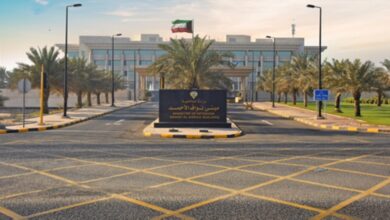Kuwait’s real estate sector shows signs of rebound in 2024

A recent economic report from the National Bank of Kuwait suggests that the real estate activity in Kuwait may experience a slight rebound in 2024. This optimism is based on a lower base from 2023 and the potential for interest rate reductions in the coming months, which could support credit demand in the sector, reported Al-Anba Daily.
However, the report also highlights several factors that could negatively impact real estate activity. These include the rising valuations in the residential sector, delays in the redevelopment of inner-city areas like Jleeb Al-Shuyoukh, increasing geopolitical risks in the region, and uncertainties surrounding the global macroeconomy. Nonetheless, the report mentions positive steps taken by the government to address supply-side constraints, such as the implementation of the Residential Cities Law and the “Anti-Monopoly of Vacant Lands” Law in 2023.
These policies aim to encourage the private sector’s involvement in resolving the housing crisis and accelerating development in underutilized lands. Regarding the performance of the real estate sector in 2023, the report notes a more positive pace in the market. Major commercial deals and stable residential sales contributed to supporting total sales in the fourth quarter of the year.
The real estate price index saw a rise in the fourth quarter of 2023, driven by increasing investment property prices that compensated for declines in residential prices. Despite the overall weak activity in the real estate market throughout the year, prospects for 2024 appear more positive. The momentum gained in credit activity and the potential for interest rate reductions by the US Federal Reserve offer hope.
Additionally, government efforts to address challenges in the residential real estate market are beginning to show progress. In the fourth quarter of 2023, total real estate sales saw the highest growth rate on a quarterly basis since the second quarter of 2022. This was driven by increased commercial sector sales in Kuwait City and Al-Ahmadi, as well as an upturn in investment sector sales.
While residential unit sales saw a decline, there was a marginal increase in demand after a period of summer calm. On an annual basis, however, residential sales continued to decline due to rising property valuations, interest rate hikes, and delays in redevelopment projects. The report also highlights the revival of demand for investment real estate, which grew for the second consecutive quarter.
Despite rising interest rates, positive expectations surrounding government amendments to the new residency law have contributed to increased demand, particularly from expatriates. Commercial sales played a crucial role in supporting total sales value in the fourth quarter of 2023. The real estate price index experienced a decline in residential unit prices but rose in the investment sector due to increased building prices, particularly in Kuwait City and Al-Ahmadi.
Efforts to address the housing crisis saw intensified allocation of housing plots. The Public Corporation for Housing Welfare distributed a significant number of plots, and infrastructure development contracts were signed for various residential projects. Kuwait Credit Bank reported an increase in real estate loan disbursements, indicating improved construction activity in the residential sector. Although challenges persist, the real estate sector in Kuwait is showing signs of potential recovery. The government’s proactive measures, coupled with favorable market conditions, contribute to the cautious optimism for the sector’s performance in 2024.














